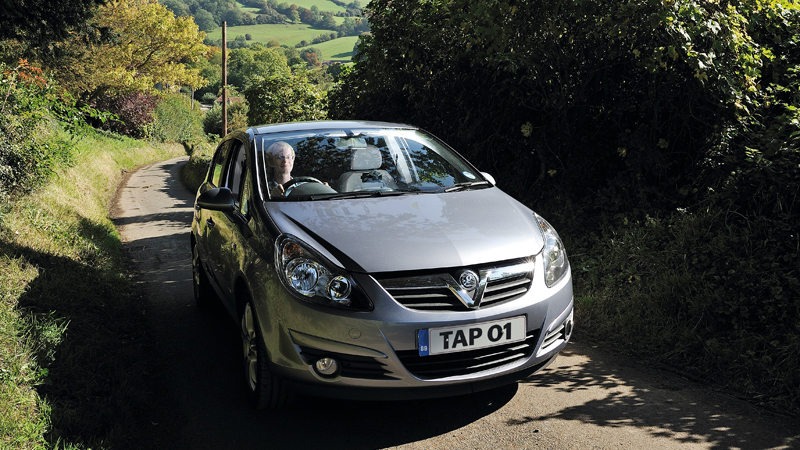Why young drivers should care about telematics tech
Smartening up your car could save you hundreds of pounds

If you're a woman and a driver, you're about to get stiffed by your insurer to the tune of £350. But luckily for you, the world of consumer technology can help you and this is how.
We're talking, of course, about the gender equalisation ruling in the European Court of Justice that says, all things being equal, from December 21st this year women in the UK must pay the same as men for their car insurance. Or rather, it will be illegal to consider gender when calculating premiums.
Until now, women have been paying on average £350 less per year for car insurance than men. The difference is even more pronounced for men under 35, many of whom are having to pay as much as £2000 more than their girlfriends to ensure the same vehicle for a year.
There is a reason for this, of course. History tells us that hormonal teenage blokes are spotty and annoying, but more pertinently they're over confident, drive too fast and show little regard for their own safety or that of others. They also think wearing their jeans down by their knees is a pretty neat idea.
Young men in the UK are actually 10 times more likely to kill themselves or someone else while driving a car than a person over 35, though there's no research that ties this trend with said questionable fashion choices.
The European courts rightly point out that this brute force approach from insurance companies is unfair on those male drivers who would never dream of doing anything remotely dangerous. Hence the new law which covers the whole of the European Union.
Now, if you listen to the alarmists, the practical upshot of this new law will be marginally reduced insurance for men under 35, while the cost for women will rise significantly.
Sign up for breaking news, reviews, opinion, top tech deals, and more.
"We expect to see premiums equalised at the higher male rate rather than the lower rate for females. If that is the case, women drivers will see their premiums rise by just over £300 on average, but for younger age groups the increase could be as much as £2,000," Gocompare's head of motor insurance, Scott Kelly told The Guardian.
So how can you ensure what you're paying for your car insurance is fair?
How telematics works
The answer is to use a telematics 'black box' in your car which measures your driving habits and thus helps insurers assess your risk and offer you a pay-as-you-go policy that's tailored especially for you. There are already smartphone apps that give you some idea of the benefits of this approach.
Traditional motor insurance underwriting involves the assessment of each risk based only upon detailed, historic data about people who came before you. In simple terms, past experience is used to predict the future likelyhood (and amount) of a claim.
"A criticism of this model," Confused.com's Gemma Stanbury and Tony Evans told TechRadar, "is that it doesn't consider me - it's based upon the insurer's past experience of people 'like' me. A telematics device can be individual to me, for example it can be used to relay how I drive, where and when I drive, familiarity of route, if I brake sharply or corner quickly etc. This data can help to shape a premium based upon my individual circumstances with the potential for safer drivers to be rewarded, as they represent a lower risk to the insurer."
Now, many people will likely balk at the idea of having a black box installed in their car. After all, the data collected by it will include 1-second GPS data which raises some interesting privacy concerns.
But another European directive – eCall – will mean these devices are fitted to all new cars from 2015 anyway. eCall is an initiative that aims to improve emergency services' response times by having your car automatically report accidents (where, when, what, how etc) as soon as they occur.
"In 2015 eCall will mean all new cars will be fitted with devices capable of monitoring drivers, like telematics," says Stanbury. "I think in the low premium areas telematics savings are likely to be marginal, price sensitivity is likely to be lower and therefore take up is much less likely to be as strong. That said for certain segments (IE young women) the benefits in terms of a potential discount are significant and with prices imminently about to go up for women, telematics presents a way for them to offset some or all of these [increases]."
Of course, these telematics boxes will only help you if you're a careful driver. If driving at 80Mph down Oxford Street at 3am is something you're particularly fond of, telematics is not your friend. And nor is society, you cur! Pull your jeans up!
But if you are a good driver, the advice from experts is to investigate telematics very closely – for many people it will save hundreds of pounds. The new law comes into effect on December 21st so when you renew your premium, you should ask your insurer for a quote on a pay as you go policy.
Car insurance prices have significantly increased across the board in recent times. but 17 to 25 year olds have been hit hardest with 49.8% increase in the last 3 years (the TPFT figure is 83.4%) so if you're in that age bracket this info should resonate with you hard.
There are already a number of companies offering telematics policies in the UK, including AA Drivesafe, Autosafe, Bell from Admiral, Coverbox and Insure the Box
Go to one of the price comparison sites like Confused.com to get a broad idea of what's on offer out there.

James was part of the TechRadar editorial team for eight years up until 2015 and now works in a senior position for TR's parent company Future. An experienced Content Director with a demonstrated history of working in the media production industry. Skilled in Search Engine Optimization (SEO), E-commerce Optimization, Journalism, Digital Marketing, and Social Media. James can do it all.